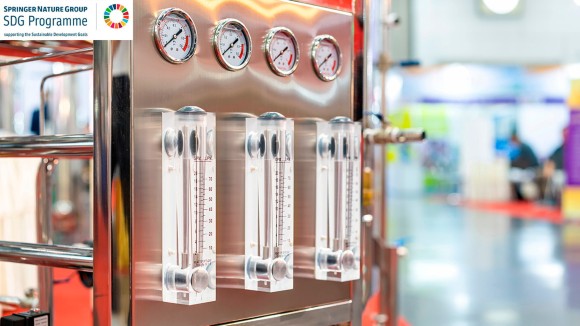Collection
Transport Phenomena in Electrochemical Devices
- Submission status
- Open
- Submission deadline
Transport phenomena, referring to mass, energy and momentum transfer, are critical factors which determine the operating efficiency and performance degradation (over time) for electrochemical energy conversion devices. The transport mechanisms might vary for different systems, such as flow batteries and water electrolyzers, resulting in one or more performance-limiting factors. Therefore, understanding and optimizing these transport phenomena is pivotal for improving the efficiency and durability of the electrochemical energy conversion devices. For instance, low ionic transport resistance enhances the energy density and charging rate of batteries, and effective heat and mass transport are crucial for the longevity and performance of fuel cells. Several research thrusts in electrochemical energy devices seek to optimize the electrode morphology and composition or engineering the wettability of porous media for enhanced transport. Equally important operando diagnostic methods can provide a better understanding of the structure-property relationship impacting the transport processes, thereby allowing optimization of electrochemical energy conversion devices.
This collection welcomes original research aimed at delving into the fundamental understanding of the origin of transport resistances, and development of operando diagnostic techniques, advanced computational models, robust materials, and innovative operating strategies to reduce transport resistances in electrochemical energy conversion devices, including fuel cells, water electrolyzers, CO2/CO/N2 reduction devices, flow batteries, and solid-state batteries.
This Collection supports and amplifies research related to SDG 7.

Editors
-
ChungHyuk Lee, PhD
Toronto Metropolitan University, Canada
-
Jason Keonhag Lee, PhD
University of Victoria, Canada
-
Mayank Sabharwal, PhD
University of Calgary, Canada
-
Gaoqiang Yang, PhD
Hunan University, China